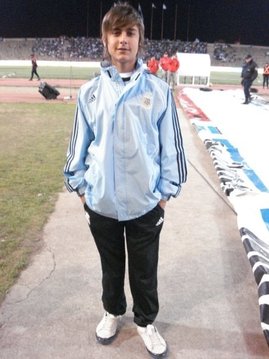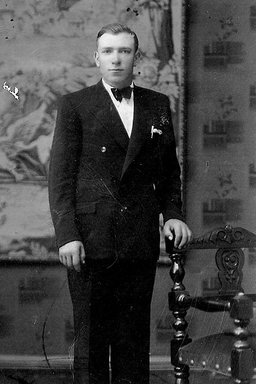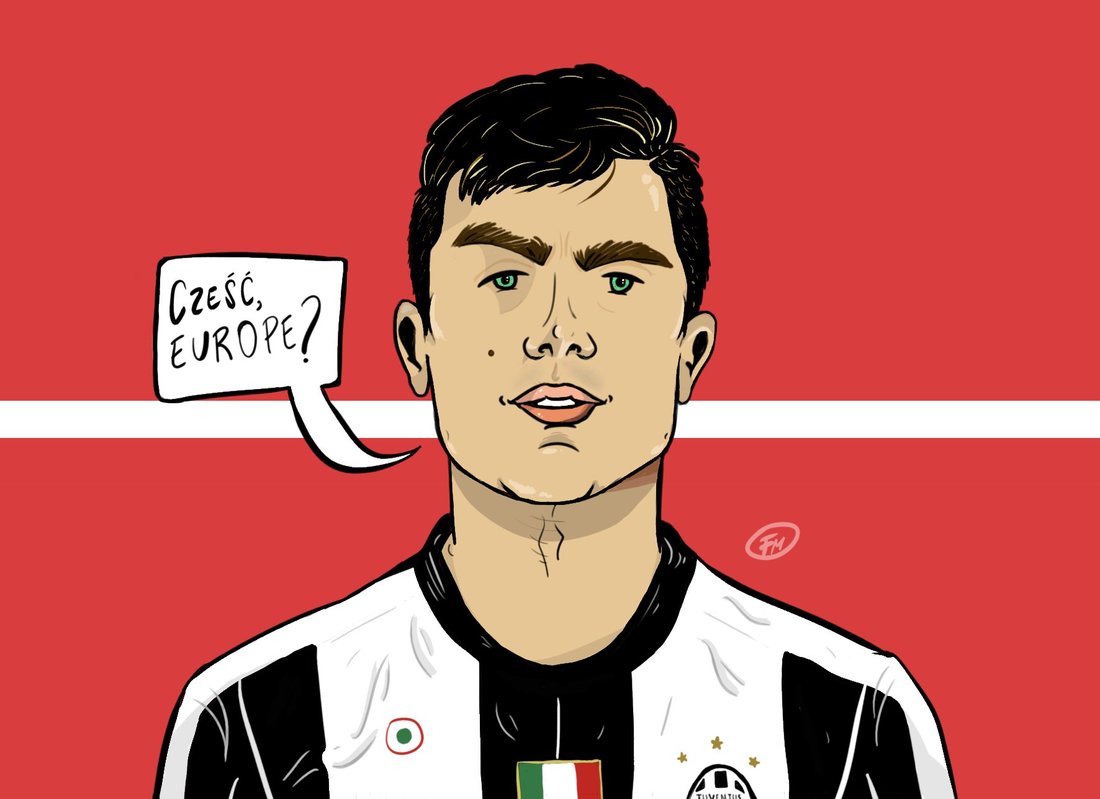Read | Paulo Dybala: Rooted in Poland, made in Argentina, polished in Italy
“Paulo, come to Poland. I invite you”
(Henryka Pałasińska, Dybala’s grandmother)
World War II brought about great loss and for civilisation, catastrophic setback. On September 1 1939, Nazi Germany’s invasion of Poland sparked the beginning of a six-year war. Voluntarily and involuntarily, families were torn apart, some more harshly than others. German chiefs swept through Polish towns, raiding all the resources they had. Families were separated, leaving young children and mothers to fend for themselves, while able bodied men, if not killed, were conscripted.
Clinging to hope was all people had; the driving force in their struggle to keep any remnants of a bloodline alive. With cities left in ashes and lives shattered, the horrific conflict ended on September 1945.
The Allied powers crawled away from battle as victors, if, considering the mass casualty and loss suffered by all participating nations, there was one. Migration and desperation forced thousands to leave it all behind, or at least what remained, in an effort to provide for their families and continue surviving. For Bolesław Dybała, a man with a now world-renowned surname synonymous with football’s next big thing, the same was true.
 A young, shaggy-haired, Dybala in Argentina
A young, shaggy-haired, Dybala in Argentina
Born in the small southern Polish village of Kraśniów, Bolesław was forced into working for Germany during the war effort. Crippled infrastructures left many like himself in ruins, as jobs were few and far between, forcing thousands of Poles to make arrangements elsewhere. Reality settled, forcing a decision of sacrifice. It meant the family tree had to spread its roots outside Poland, opening the door for opportunity and a footballing dream to take shape decades later. Bolesław, with no pull or place to rest his head, set off to Argentina.
For many footballers, their roots are not always so defined. Ancestry is of paramount importance in understanding football’s vast history. Every individual has their story, and current Juventus and Argentina superstar Paulo Dybala is no different.
Growing up in Laguna Larga in Córdoba, Argentina, Paulo started his football career at the age of four. The local football pitches, where he roamed with a ball tied to his feet, became his sanctuary; engrained in his heart along with the smile permanently fixed to his baby face. At 17, his local club Instituto presented him the opportunity to live out a dream.
His debut season in Argentina’s second division, Primera B Nacional, started well enough, and he became the youngest player to score for the club, surpassing Mario Kempes. But contrary to popular belief, things weren’t always rosy for the diminutive, shaggy haired attacker.
He, like many others following a career in football, stared at the prospect of irrelevancy. Persevering, however, Paulo parlayed a strong season into earning a move to the grandest stage of them all for any football hopeful. Having spent the better part of eight years in Argentina, Europe called his name. And on 29 April 2012, the capricious president of Sicilian club Palermo, Maurizio Zamparini, announced the signing of “the new Sergio Agüero.”
Little was known about ‘La Joya’s’ background, aside from his adolescent years in Cordoba and his rise to fame. Indeed, it was only a few years ago, while Dybala began to find his feet in Italy, that his Eastern Europe ties came to the forefront, much to the surprise of many.
Still living in Kraśniów, Bolesław’s sister (Paulo’s grandmother) Henryka Pałasińska holds the deepest memory of her brother and his hardships during the Second World War era. During the 2015 Paulo Dybala ‘La Joya’ documentary, she spoke of these hardships:
“He slept in cornfields for two weeks without any food. Luckily, he managed to contact someone back home and help arrived in time to save him from starvation.”
Football was not embedded in the Dybala gene-pool. Bolesław spent years serving as a clergy worker, an occupation far from the green pastures of the pitches his grandson dominates today. Sport was likely the last thing on his mind, as his main priority was to remain in touch with those close to his heart. His brother in Canada would send letters, postcards and, on special occasions – like Christmas and New Year’s Eve – communion wafers for the family. Nobody in Argentina spoke the Polish language, so translation was required. Bolesław passed away while Paulo was only 4-years-old and memories of his grandfather’s existence are perhaps foggy, yet, the impressions he left on his superstar nephew have lingered.
Acquiring Polish citizenship became Paulo’s objective upon setting foot in Sicily, as he felt connected to his grandfather. Ultimately, restrictions resulted in him obtaining an Italian passport through his mother’s side, whose origins stem from Naples. To this day, despite not being so openly public about his upbringing, Paulo remains prouder than ever of his ancestry, although doubt never wrapped his mind as to which country his heart belonged.
Before Dybala selected Argentina, concerted efforts were made by both the Polish and Italian federations to tempt the then teenager into their system. In December 2012, after a strong performance in the European Championships, Italy boss Cesare Prandelli reportedly contacted the youngster about representing the Azzurri in the future. Prandelli had a known reputation for selecting non-Italian born players, commonly referred to as ‘oriundi’, and gave caps to naturalised Argentines like Pablo Dani Osvaldo and Ezequiel Schelotto. Earlier attempts had also come from Poland, who in 2011, supposedly reached out to Dybala and asked if he’d like to represent the Biało-Czerwoni, an offer Paulo politely rejected.
Like his two elder brothers Gustavo and Mariano, Paulo was born and raised in Argentina and his desire to don ‘La Albiceleste’ was obvious:
“I always dreamed of playing for the country I was born in; my country. I’d love to represent my family and grandpa, but I am an Argentinian.”
 Bolesław Dybała, Paulo Dybala’s grandfather
Bolesław Dybała, Paulo Dybala’s grandfather
Believe it or not, while the Dybala family was fully aware of their Polish ties, their distant Polish relatives had no idea who Paulo was. Only 21 at the time of the documentary’s release, the agile forward already lit up Serie A. The 2014-15 season with the Rosanero saw Dybala eclipse double digits in both goals and assists, fuelling rumors of a major summer move. It was no surprise that elite Italian clubs like AC Milan and Juventus came knocking for his sparkling left foot.
Of course, the Bianconeri snapped him up for a lofty €32 million plus €8 million in add-ons, securing the rights to one of football’s crown jewels. Even then, Henryka’s son Hubert, still hadn’t a clue who his nephew was. When asked this question by the translator of the documentary, prior to meeting co-filmmaker Mateusz Święcicki, Hubert abruptly replied “no, not at all.”Imagine that. Your nephew is being talked about as a pre-destined Ballon d’Or winner, one mentioned in the same breath as Lionel Messi, and you had not the slightest clue who he is?
Life has this unique way of leading us unexpectedly on different journeys. Facing no other option but to seek a better life, Bolesław Dybała’s travel to Argentina paved the way for an eventual star to shine and, in a way through his grandson, tell the story of his own courage. But, hindsight is twenty-twenty. Maybe we wouldn’t be sharing this story if it weren’t for Paulo’s meteoric rise as a footballer. In any case, it was through his grandfather that he now has this football career and its many blessings.
Dybać, derived from Polish origin, means to lurk; to watch someone or something. These words are befitting of the ‘Old Lady’s’ 23-year-old star. After all, he is the gladiator stalking his first UEFA Champions League trophy from behind his now-famous mask celebration.
Next month, according to film-maker Mateusz, Paulo’s brother Mariano will visit Poland for the very first time. Should Paulo lift the trophy next month in Cardiff, perhaps he’ll join his brother on his maiden visit, taking up his relative’s offer for a toast with some Polish vodka.
A special thank you to documentarians Mateusz Święcicki (@matiswiecicki) and Filip Kapica (@fkapica), as well as Polish football expert Kamil Rogólski (@K_Rogolski) who’s combined contributions played a large role in helping bring this piece to life.
Words by Matthew Santangelo: @>Matt_Santangelo
‘Matt is an Italian football writer who co-founded the blog, Milan Brothers. He is TGU’s Social Media Direttore, as well as an Editor and Columnist at Italian Football Daily.’

